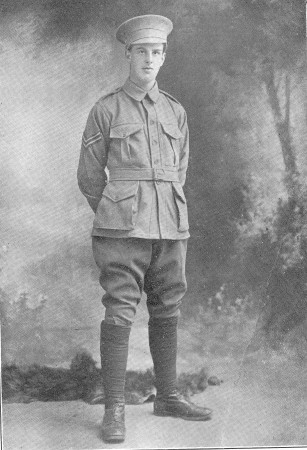WWI Stories – James Drummond Burns
Anthony McAleer shares the story of Gallipoli poet James Drummond Burns.
James Drummond Burns was the son of Reverend Hugh M Burns, Minister at St Andrews Presbyterian Church, Lilydale. In 1914, he published the poem ‘The Bugles of England’, which quickly became popular. The poem summed up how many Australians felt about supporting England in a time of need. ‘The Bugles of England’ has since been hailed as one of the great poems of World War One, and is often used by historians to sum up the mood of Australia in those early months of war:
The bugles of England were blowing o’er the sea,
As they had called a thousand years, calling now to me;
They woke me from dreaming in the dawning of the day,
The bugles of England – and how could I stay?
The bugles of England – and how could I stay?
The banners of England, unfurled across the sea,
Floating out upon the wind, were beckoning to me;
Storm-rent and battle-torn, smoke stained and grey,
The banners of England – and how cold I stay?
Floating out upon the wind, were beckoning to me;
Storm-rent and battle-torn, smoke stained and grey,
The banners of England – and how cold I stay?
O England, I heard the cry of those that died for thee,
Sounding like an organ-voice across the winter sea;
They lived and died for England, and gladly went their way-
England, O England – how could I stay?
Sounding like an organ-voice across the winter sea;
They lived and died for England, and gladly went their way-
England, O England – how could I stay?
James enlisted to serve with the Australian Imperial Force in 1915, and joined the 21st Battalion. He survived the sinking of the HMT Southland, and also survived Gallipoli. He was killed at Shrapnel Valley on 18 September, 1915.
In his memory, the people of Lilydale held a service for him at St Andrews. A memorial for James was unveiled at the Lilydale War Memorial on 30 November 2014.






